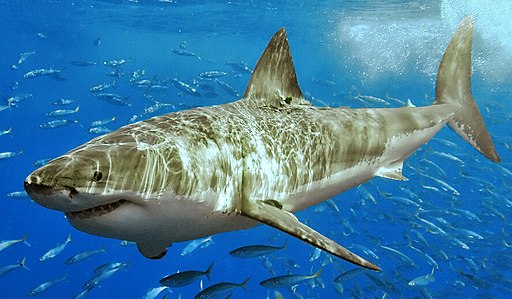In a paper published by John West in the Marine and Freshwater Research Journal, he concludes that increases in the number of unprovoked shark attacks (attacks not fatalities) is in line with increases in the number of people in the water and is unlikely to be due to increases in shark numbers. Indeed with tens of millions of sharks being killed every year, and most populations in decline, this hardly seems likely. He concludes the article nicely, saying that "encounters with sharks, although a rare event, will continue to occur if humans continue to enter the ocean".
That's what it really boils down to, we are entering the shark's domain at times when they are likely to be close to shore and hunting, and our reaction when a few people are tragically attacked is to kill the sharks. Hardly seems fair, does it? The proposed method of deploying baited hooks along popular beaches has been questioned, with some suggesting the presence of bait near people may actually increase the chance of shark encounters. Far better would be to use our scientific knowledge of shark movement and feeding patterns to restrict people's use of beaches in certain places or at certain times.
The whole scheme brings to mind the farcical badger culling attempted in England recently to control bovine TB. Trials culls went ahead in some locations, despite warnings from scientists that it was unlikely to work. Unsurprisingly, the unsuccessful culls were ended early, far short of their proposed targets.
 |
| WikiMedia Commons |
Sharks are incredible animals which have existed in the oceans for over 400 million years. As apex predators they form an absolutely vital part of the marine ecosystem, and one which we cannot afford to lose. Many people have protested the shark cull and if you, like me, oppose the scheme, why not add your name to the Greenpeace petition.